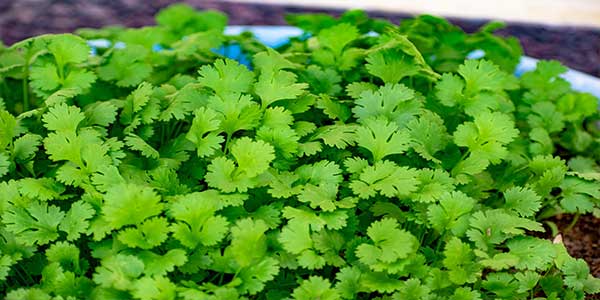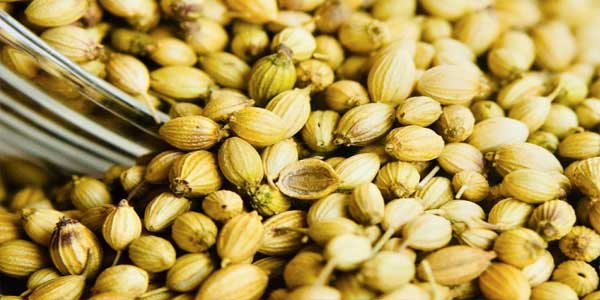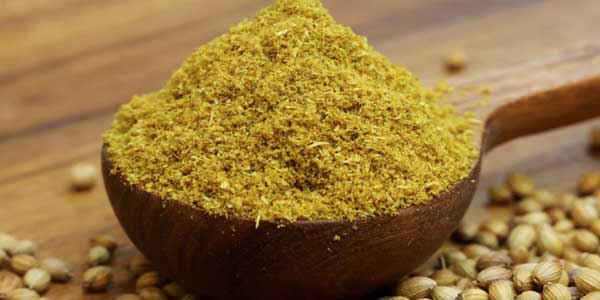Introduction:
Coriander seeds (Sabut Dhaniya), are a popular spice used in various cuisines around the world. Derived from the coriander plant (Coriandrum sativum), coriander seeds offer a unique flavor and aroma to dishes. They are a staple in Indian, Middle Eastern, and Mediterranean cuisines and have been used for centuries.
In addition to their culinary uses, coriander seeds provide numerous health benefits and have been utilized for their medicinal properties. In this comprehensive article, we will delve into the uses, qualities, origin, sources, production, applications, health benefits, culinary uses, how to use coriander seeds in cooking, and potential side effects associated with their consumption.
Origin and Sources of Coriander Seeds (Sabut Dhaniya):
Coriander seeds have a long history and are believed to have originated in the Mediterranean and Middle Eastern regions. Today, coriander is cultivated in various parts of the world, including India, Russia, Morocco, Mexico, and China. The seeds are harvested from the coriander plant once it reaches maturity and the flowers have dried. Coriander seeds can be found in grocery stores, spice markets, and online sources as whole seeds or ground into powder.

Qualities of Coriander Seeds (Sabut Dhaniya):
Coriander seeds possess several qualities that make them a sought-after spice in cooking. Here are some notable qualities of coriander seeds:
a) Flavor Profile: Coriander seeds have a warm, earthy, and slightly citrusy flavor. They offer a delicate balance of sweetness and herbal notes, adding depth and complexity to dishes.
b) Aromatic: Coriander seeds have a distinct, aromatic fragrance that intensifies when toasted or ground. The aroma adds a pleasant dimension to culinary creations.
c) Versatility: Coriander seeds are versatile and can be used in both whole and ground forms. They are compatible with a wide range of flavors and ingredients, making them a popular choice in various cuisines.
d) Nutritional Value: Coriander seeds are a good source of dietary fiber, vitamins, and minerals. They contain antioxidants and have anti-inflammatory properties. However, the nutritional content may vary depending on the quality and freshness of the seeds.
Production of Coriander Seeds (Sabut Dhaniya):
The production of coriander seeds involves several stages, from cultivation to processing. Here’s an overview of the production process:
a) Cultivation: Coriander plants are typically grown in well-drained soil with ample sunlight. They require moderate watering and take around 3-4 months to reach maturity.
b) Harvesting: Once the coriander plant matures, its flowers dry out and produce seeds. The seeds are harvested by cutting the entire plant and allowing it to dry further.
c) Drying: After harvesting, the coriander plants are hung upside down in a well-ventilated area to dry. This drying process allows the seeds to separate easily from the dried flowers.
d) Threshing: Once the plants are fully dried, the seeds are separated from the rest of the plant material through threshing. This involves beating or rubbing the dried plants to release the seeds.
e) Cleaning: The separated coriander seeds are cleaned to remove any impurities, debris, or remnants of the dried plant material. This ensures the quality and purity of the seeds.
f) Packaging: The cleaned coriander seeds are then packaged and stored in airtight containers to maintain their freshness, flavor, and aroma. They are available in whole seed form and can be ground into powder as needed.
Uses and Applications of Coriander Seeds (Sabut Dhaniya):
Coriander seeds have a wide range of uses in cooking and culinary applications. Let’s explore some of the primary uses:
a) Spice Blends: Coriander seeds are a key ingredient in many spice blends, such as garam masala, curry powder, and pickling spices. These blends are used to enhance the flavor and aroma of various dishes.
b) Marinades and Rubs: Whole or crushed coriander seeds are often used in marinades and rubs for meat, poultry, and seafood. They contribute to the overall flavor and help tenderize the proteins.
c) Curry Powders: Coriander seeds are a vital component of curry powders, lending their distinct taste and aroma to curries and other Indian dishes.
d) Baking: Coriander seeds can be used in baking, particularly in bread, biscuits, and pastries. They add a subtle flavor and texture to baked goods.
e) Infusions and Teas: Coriander seeds can be steeped in hot water to create herbal infusions or added to teas for a refreshing and aromatic beverage.

Health Benefits of Coriander Seeds (Sabut Dhaniya):
Coriander seeds offer various health benefits due to their nutritional composition and active compounds. Here are some notable health benefits associated with coriander seeds:
a) Digestive Aid: Coriander seeds are known for their digestive properties. They can help alleviate digestive discomfort, such as bloating, gas, and indigestion. The seeds contain compounds that stimulate the production of digestive enzymes, promoting healthy digestion.
b) Anti-inflammatory and Antioxidant Properties: Coriander seeds are rich in antioxidants that help neutralize harmful free radicals in the body. They also possess anti-inflammatory properties that may help reduce inflammation-related conditions.
c) Blood Sugar Regulation: Some studies suggest that coriander seeds may have a beneficial effect on blood sugar levels. They may help regulate insulin secretion and improve glucose metabolism, potentially benefiting individuals with diabetes or those at risk of developing the condition.
d) Cholesterol Management: Coriander seeds may contribute to maintaining healthy cholesterol levels. They contain compounds that may help lower LDL (bad) cholesterol levels and increase HDL (good) cholesterol levels, promoting heart health.
e) Anti-microbial Properties: Coriander seeds possess antimicrobial properties that can inhibit the growth of certain bacteria and fungi. They may help maintain oral health and reduce the risk of infections.
Use of Coriander Seeds (Sabut Dhaniya) in Cooking:
Coriander seeds can be used in various ways in cooking to enhance the flavor and aroma of dishes. Here are some tips on how to use coriander seeds effectively:
a) Dry Roasting: Dry roast whole coriander seeds in a skillet over medium heat until fragrant. This toasting process intensifies their flavors and releases their aromatic oils. Be careful not to burn them, as it can make them bitter.
b) Grinding: Whole coriander seeds can be ground into a fine powder using a spice grinder or mortar and pestle. Freshly ground coriander powder has a more potent flavor and aroma.
c) Tempering: Coriander seeds are commonly used in tempering or tadka, a cooking technique in Indian cuisine. Heat oil or ghee in a pan, add whole coriander seeds, and allow them to sizzle and release their flavors before adding other ingredients.
d) Infusions: Crushed coriander seeds can be added to stocks, soups, and sauces to infuse them with a subtle coriander flavor. Remove the seeds before serving.
e) Pickling: Coriander seeds are a popular addition to pickling solutions. They impart a unique flavor and enhance the preservation process.

Side Effects and Precautions:
While coriander seeds are generally safe for consumption, it’s important to be aware of potential side effects and take necessary precautions:
a) Allergies: Some individuals may be allergic to coriander seeds or other spices. If you experience allergic reactions such as itching, hives, or difficulty breathing after consuming coriander seeds, discontinue their use and seek medical attention if necessary.
b) Medication Interactions: Coriander seeds may interact with certain medications, including anticoagulants (blood thinners), antidiabetic drugs, and medications metabolized by the liver. If you are taking any medications, consult with a healthcare professional before consuming large amounts of coriander seeds or using coriander supplements.
c) Pesticide Residues: Ensure that the coriander seeds you purchase are sourced from reputable suppliers who adhere to quality standards and minimize pesticide residues. Consider choosing organic or locally sourced options whenever possible.
d) Pregnancy and Breastfeeding: Pregnant and breastfeeding women can generally consume coriander seeds as part of a balanced diet. However, it’s always recommended to consult with a healthcare professional for personalized advice.
Conclusion:
Coriander seeds, or Sabut Dhaniya, are a versatile and flavorful spice that adds depth and complexity to a wide range of dishes. Whether used in spice blends, marinades, curries, or baking, coriander seeds contribute their unique taste and aroma to culinary creations. Alongside their culinary uses, coriander seeds offer numerous health benefits, including digestive aid, anti-inflammatory properties, blood sugar regulation, cholesterol management, and antimicrobial effects.
By understanding the origin, sources, qualities, production methods, applications, health benefits, culinary uses, how to use coriander seeds in cooking, and potential side effects, you can confidently incorporate this versatile spice into your culinary repertoire. Enjoy the delightful flavors and health benefits that coriander seeds bring to your favorite recipes.